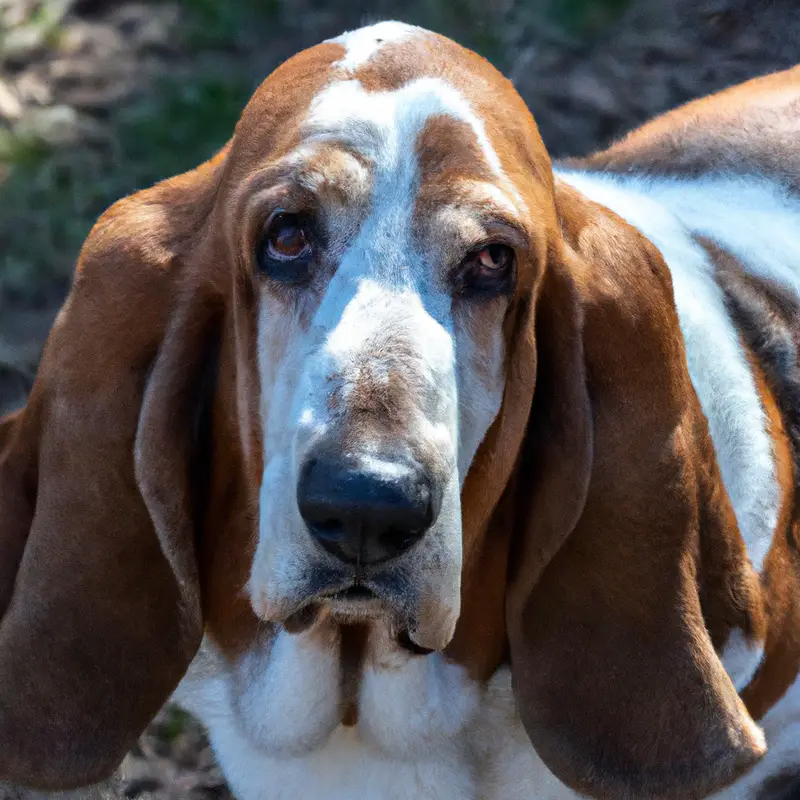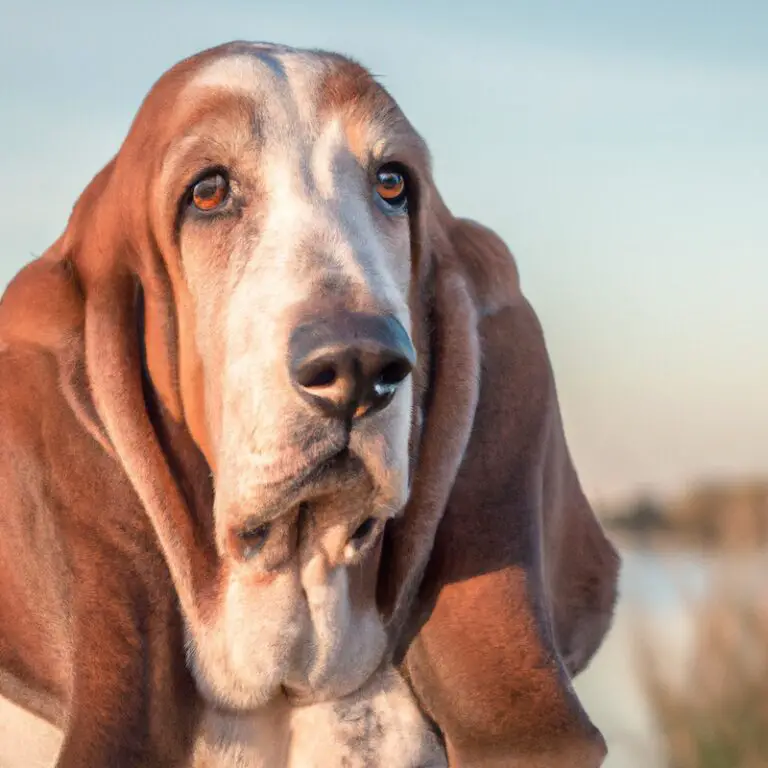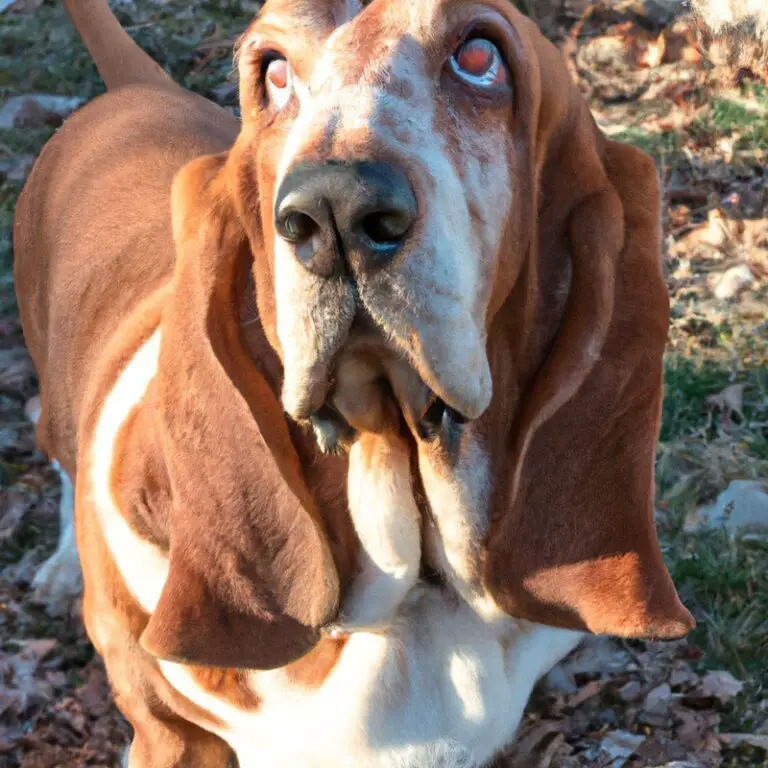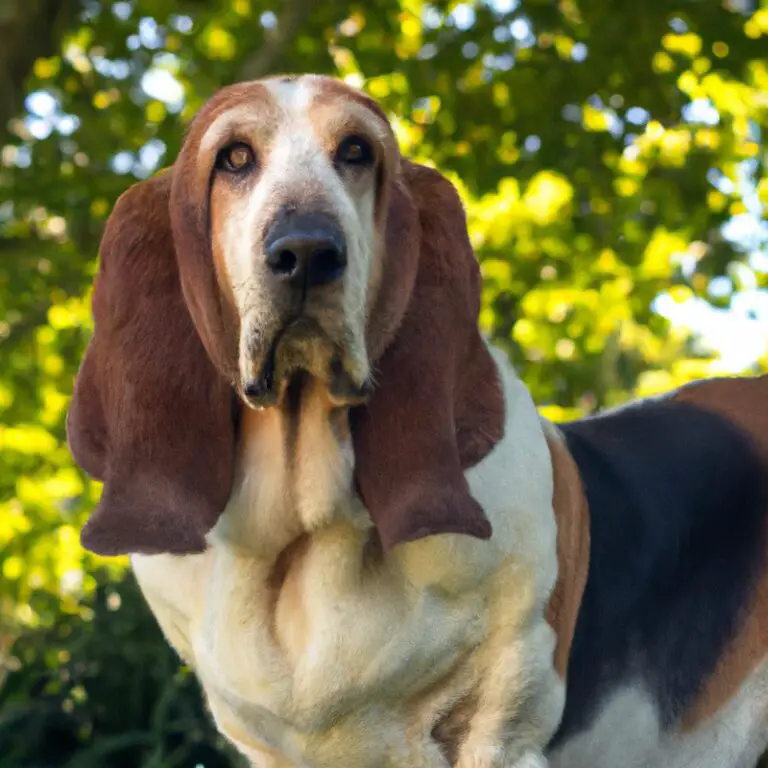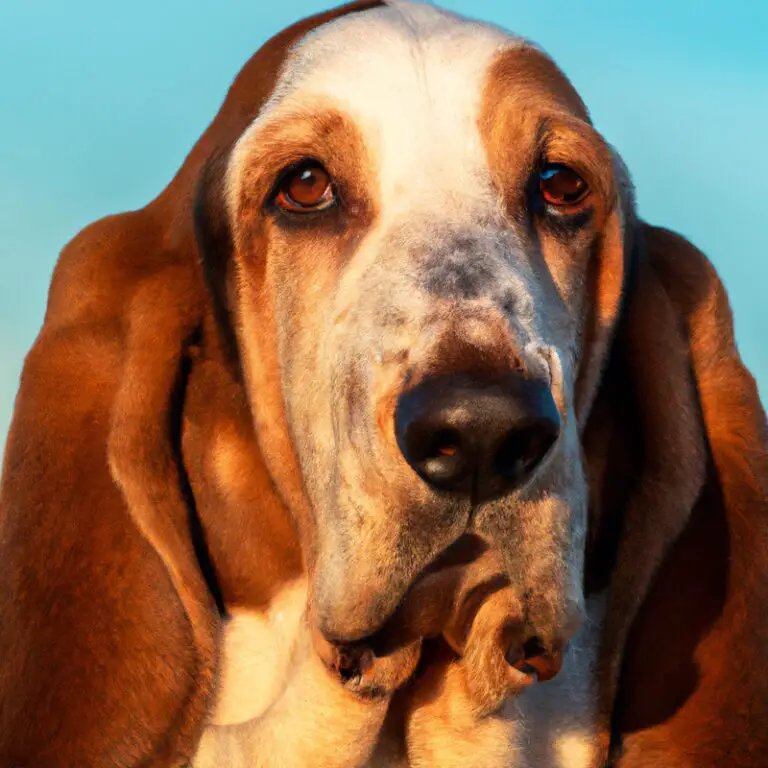How Do Basset Hounds Behave Around Unfamiliar Birds?
Key Takeaways:
- Basset Hounds tend to have a calm and friendly demeanor around unfamiliar birds.
- They generally show minimal prey drive towards birds and are not typically aggressive towards them.
- Basset Hounds may display curiosity or mild interest in birds, but are unlikely to chase or attempt to hunt them.
- Proper training and socialization can help reinforce positive behavior and reduce any potential instinctual reactions towards birds.
Have you ever wondered how your lovable Basset Hound would react when encountering unfamiliar birds? As a proud Basset Hound owner myself, I can assure you that these loyal and affectionate dogs possess unique instincts and characteristics that influence their behavior around birds.
In this article, we will delve into the fascinating world of Basset Hound behavior, exploring their prey drive, identifying factors that affect their behavior around birds, and providing valuable tips on how to manage these interactions.
Whether you’re a seasoned Basset Hound owner or considering bringing one into your home, this article will equip you with the knowledge to ensure a harmonious coexistence between your furry friend and our feathered friends. So, let’s dive in and discover the secrets behind Basset Hound behavior around unfamiliar birds!
| Behavior | Description |
| Curiosity | Basset Hounds are naturally curious and may be interested in watching or investigating unfamiliar birds. |
| Scent Hound | As a scent hound breed, Basset Hounds might be distracted by interesting scents, making them less focused on birds. |
| Chasing Instinct | Sometimes, Basset Hounds may have a strong instinct to chase small animals, including birds, if they are allowed off-leash. |
| Gentle Nature | Basset Hounds generally have a mild and gentle temperament, which could translate to a calm and non-aggressive response towards unfamiliar birds. |
| Training | With proper training, Basset Hounds can be taught to ignore and not engage with birds, especially if they are primarily kept as indoor pets. |
Understanding Basset Hound Behavior
Instincts and Characteristics of Basset Hounds
Basset Hounds have several distinct instincts and characteristics that are worth knowing about. Firstly, they are scent hounds, which means they have an exceptional sense of smell and a strong instinct to follow scents.
Secondly, Basset Hounds are known for their calm and laid-back temperament.
They are generally friendly, patient, and good-natured, making them great family pets. Thirdly, Bassets have a tendency to be stubborn and independent, which can make training a bit challenging.
However, with patience and consistent positive reinforcement, they can be trained effectively.
Lastly, Bassets have a propensity to howl or bay, which is a characteristic unique to their breed. These instincts and characteristics make Basset Hounds a lovable and interesting breed to have as a companion!
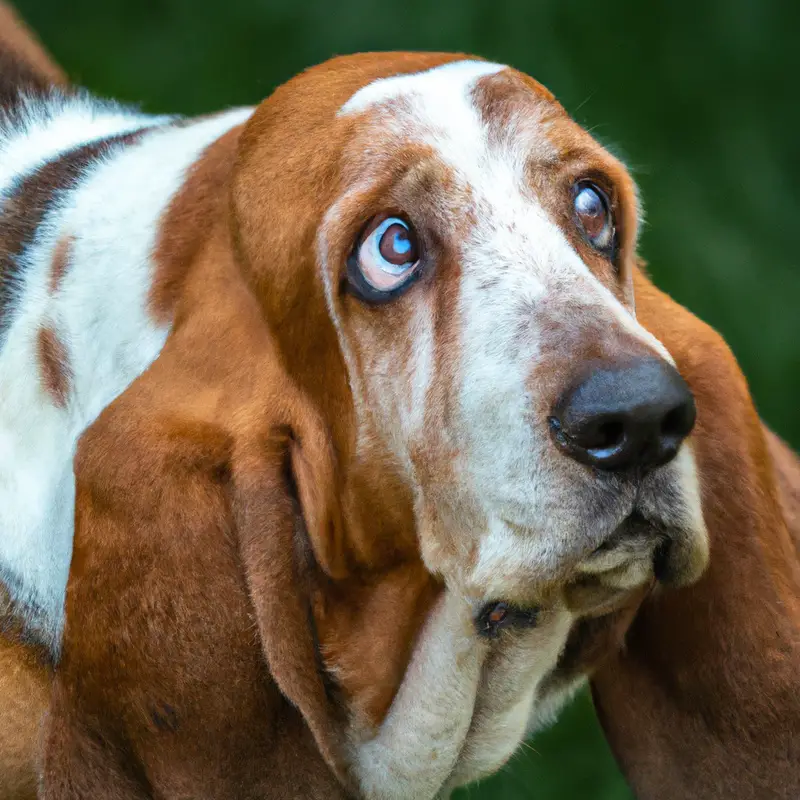
Socialization and Training of Basset Hounds
Socialization and training are key for Basset Hounds.
Early socialization helps them become comfortable around different people, animals, and environments.
Introduce your Basset Hound to various birds, ensuring positive experiences.
Training should focus on basic commands like sit, stay, and come.
Use positive reinforcement, such as treats or praise, to encourage good behavior.
Consistency and patience are important in training.
Consider seeking professional help if you encounter behavior challenges.
Keep in mind that every Basset Hound is unique, so adapt your training methods to suit your dog’s individual needs.
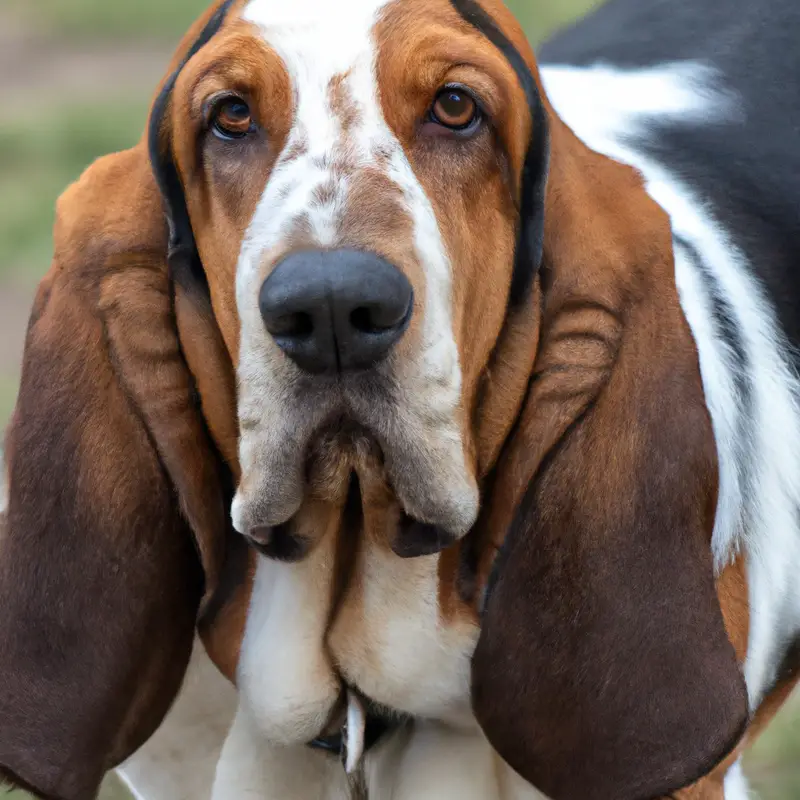
Interactions with Unfamiliar Birds
Exploring Basset Hounds’ Prey Drive
Basset Hounds have a strong prey drive due to their hunting instinct. They were originally bred for tracking small game.
This means that when they encounter unfamiliar birds, they may feel the urge to chase and potentially harm them.
It’s important to be mindful of this natural behavior and take steps to manage their interactions with birds to ensure the safety of both the dog and the birds.
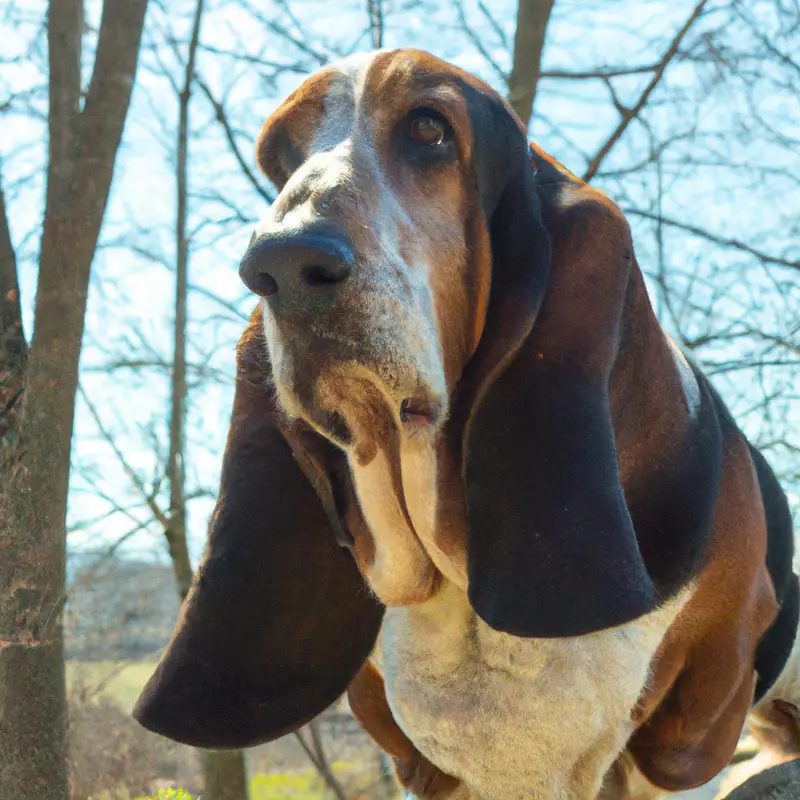
Factors Affecting Basset Hound Behavior around Birds
Basset Hound behavior around birds can be influenced by several factors.
Firstly, their innate prey drive plays a significant role.
Basset Hounds have a strong hunting instinct, making them more prone to chasing birds.
Secondly, their socialization and training history can impact their behavior.
Properly socialized Basset Hounds tend to be more relaxed around birds and less likely to exhibit aggressive behavior.
Lastly, the individual personality and temperament of the dog can also influence how they behave around birds.
Some Basset Hounds may be more curious or easily excitable, while others may be more calm and indifferent.
Tips for Managing Basset Hound Interactions with Birds
When it comes to managing your Basset Hound’s interactions with birds, there are a few tips that can help.
Firstly, always keep your Basset Hound on a leash when outside to prevent any potential chasing or harm to the birds.
Secondly, provide your Basset Hound with plenty of mental and physical stimulation to redirect their focus away from the birds.
Thirdly, consider using positive reinforcement training techniques to reinforce good behavior around birds.
By implementing these tips, you can help ensure a safe and controlled environment for both your Basset Hound and the birds.
Training Basset Hounds around Birds
Basic Training Commands for Basset Hounds
Basset Hounds are intelligent dogs that respond well to consistent training.
Here are some basic training commands that can help you establish a strong foundation with your Basset Hound:
- Sit: Teach your Basset Hound to sit on command by holding a treat above their nose and then moving it back towards their tail. As they follow the treat with their nose, their hind end will naturally lower into a sitting position.
- Stay: Start by asking your Basset Hound to sit. Then, with your palm facing them, say “stay” and take a step back. If they remain in position, praise them and reward them with a treat. Gradually increase the distance and duration of the stay.
- Come: Train your Basset Hound to come when called by using a positive and excited tone of voice. Start in a familiar and distraction-free environment, then gradually introduce more challenging scenarios. Reward them with praise or treats when they come to you.
- Lie Down: Begin by asking your Basset Hound to sit. Then, holding a treat in your hand, lower it down to the ground in front of them, saying “lie down” as you do so. The treat will naturally lead them into a lying position. Once they are lying down, praise and reward them.
Remember to be patient and consistent when training your Basset Hound.
Use positive reinforcement, such as treats and praise, to reward desired behaviors.
Keep training sessions short and enjoyable, and always end on a positive note.
With time and practice, your Basset Hound will become a well-trained and obedient companion.
Desensitization Techniques for Basset Hounds and Birds
When it comes to desensitizing Basset Hounds to birds, there are a few effective techniques to try. First, start by exposing your dog to birds from a distance, gradually decreasing the distance over time.
This will help them become more comfortable and less reactive.
Use positive reinforcement, such as treats or praise, when they remain calm around birds. Incorporate controlled training sessions where you expose your Basset Hound to birds in a controlled environment.
Remember to be patient and consistent in your approach to desensitization.
Reward-based Training for Positive Behavior
Reward-based training is a highly effective method for promoting positive behavior in Basset Hounds. Instead of using punishment or force, this approach focuses on rewarding desirable actions.
By using treats, praise, and toys as positive reinforcement, I can encourage a Basset Hound to exhibit desired behaviors such as sitting, staying, and walking politely on a leash.
This training method helps build a strong bond between the owner and the dog, while also creating a positive and enjoyable learning experience for the Basset Hound. Training sessions should be short, consistent, and fun, ensuring that the dog associates good behavior with pleasurable rewards.
Safety Measures for Basset Hounds and Birds
Supervision and Leash Training for Basset Hounds
Supervision and leash training are essential for basset hounds.
By keeping an eye on them and using a leash, you can ensure their safety and prevent any unwanted behavior around birds.
When supervising, make sure to stay close and intervene if necessary.
Use a sturdy leash and train them to walk calmly and obediently.
Remember to always be attentive and proactive during walks to maintain control and prevent any potential issues.
Creating a Secure Environment for Basset Hounds and Birds
To create a secure environment for both your Basset Hound and the birds, there are a few things you can do. First, ensure that your backyard or outdoor space is properly fenced and secure.
This will prevent your dog from wandering off and potentially causing harm to the birds or themselves.
Additionally, it’s important to supervise any interactions between your dog and birds. This can be done by keeping your Basset Hound on a leash or using a secure enclosure when they are outside.
Finally, consider providing your dog with plenty of mental and physical stimulation to help redirect their energy away from potential bird-chasing behavior.
Seeking Professional Help for Basset Hound Behavior Issues
If you’re experiencing behavior issues with your Basset Hound that you’re struggling to resolve on your own, seeking professional help can be a beneficial solution. A professional dog trainer or behaviorist will have the expertise and experience to assess your Basset Hound’s behavior and provide guidance tailored to their specific needs.
They can help diagnose any underlying issues, develop a customized training plan, and offer techniques to address and modify your Basset Hound’s behavior.
Remember, professional help can make a significant difference in resolving behavior issues and improving your relationship with your furry friend.
Final Verdict
Understanding Basset Hound behavior around unfamiliar birds is crucial for creating a harmonious environment for both pets and wildlife. Basset Hounds have natural instincts that may cause them to chase or display prey drive towards birds.
Factors such as socialization, training, and management techniques can greatly influence their behavior.
Basic training commands, desensitization techniques, and reward-based training can help modify their behavior. Moreover, supervision, leash training, and creating a secure environment are important safety measures.
Seeking professional help can be beneficial for addressing any behavior issues.
By following these guidelines, you can ensure a positive and safe interaction between your Basset Hound and unfamiliar birds.

